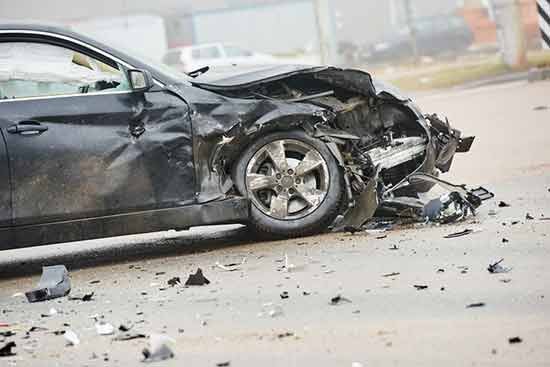Car accidents are a pervasive and often tragic aspect of modern life. Every year, millions of people are injured or killed in road accidents, making them a leading cause of injury and death worldwide. The dangers associated with car accidents extend far beyond the immediate physical harm, encompassing psychological, financial, and societal impacts. This article delves into the multifaceted dangers of car accidents, highlighting the importance of road safety and preventive measures.
1. Physical Injuries
The most immediate and obvious danger of car accidents is the physical injury to those involved. Injuries can range from minor cuts and bruises to severe, life-threatening conditions. Common injuries include:
- Whiplash: A common injury in rear-end collisions, causing neck pain and stiffness.
- Fractures and Broken Bones: Often resulting from the impact or from being thrown within the vehicle.
- Head Injuries: Including concussions and traumatic brain injuries (TBI), which can have long-term cognitive effects.
- Spinal Cord Injuries: Potentially leading to paralysis and requiring lifelong care.
- Internal Injuries: Damage to internal organs that may not be immediately apparent but can be fatal if not treated promptly.
These injuries can result in chronic pain, disability, and a significant reduction in quality of life. Recovery often involves extensive medical treatment, rehabilitation, and long-term care, placing a considerable burden on the victims and their families.
2. Psychological Impact
Beyond physical injuries, car accidents can have profound psychological effects. Survivors may experience:
- Post-Traumatic Stress Disorder (PTSD): Symptoms include flashbacks, nightmares, and severe anxiety related to the accident.
- Depression and Anxiety: The trauma of the accident, combined with physical pain and lifestyle changes, can lead to mental health issues.
- Phobia of Driving: Some individuals develop a fear of driving or even being in a car, significantly affecting their mobility and independence.
The psychological aftermath can be as debilitating as physical injuries, requiring therapy and support to overcome.
3. Financial Consequences
Car accidents often bring significant financial repercussions. Victims may face:
- Medical Expenses: Immediate costs such as emergency room visits, surgeries, and ongoing treatments.
- Rehabilitation Costs: Physical therapy, occupational therapy, and other forms of rehabilitation can be expensive.
- Lost Income: Time off work due to injury or ongoing disability can result in lost wages.
- Property Damage: Repairing or replacing a damaged vehicle adds to the financial strain.
Insurance may cover some costs, but out-of-pocket expenses and the long-term financial impact can be overwhelming. In cases where the accident leads to disability, the financial implications can extend over a lifetime. If your car accident occured due to the negligence of another, an experienced Long Island personal injury lawyer can assist you through the legal process of your case.
4. Societal Impact
The dangers of car accidents extend beyond the individual, affecting society as a whole. The broader societal impacts include:
- Healthcare System Burden: Car accident injuries place a significant demand on healthcare resources, from emergency services to long-term care.
- Economic Loss: The loss of productive members of society due to death or disability affects the economy. Additionally, traffic congestion and accidents can lead to lost productivity.
- Legal and Insurance Costs: Legal proceedings and insurance claims associated with car accidents contribute to the overall societal burden.
5. Causes and Prevention
Understanding the causes of car accidents is crucial for prevention. Common causes include:
- Distracted Driving: Using mobile phones, eating, or other distractions.
- Speeding: Exceeding speed limits or driving too fast for conditions.
- Driving Under the Influence: Alcohol and drugs impair judgment and reaction times.
- Reckless Driving: Aggressive driving behaviors such as tailgating and erratic lane changes.
- Weather Conditions: Rain, snow, and fog can create hazardous driving conditions.
Preventive measures are essential to mitigate these dangers. Effective strategies include:
- Education and Awareness: Campaigns to raise awareness about the dangers of distracted driving, speeding, and DUI.
- Law Enforcement: Strict enforcement of traffic laws and penalties for violations.
- Vehicle Safety Technology: Advancements such as automatic braking systems, lane departure warnings, and adaptive cruise control can reduce the risk of accidents.
- Infrastructure Improvements: Safer road designs, better signage, and improved lighting can enhance road safety.
Car accidents are a significant public health issue with far-reaching consequences. The physical, psychological, financial, and societal impacts underscore the need for comprehensive prevention strategies. By understanding the dangers and implementing effective measures, we can reduce the frequency and severity of car accidents, ultimately saving lives and improving the well-being of individuals and communities. Road safety is a shared responsibility, and concerted efforts are essential to make our roads safer for everyone.
